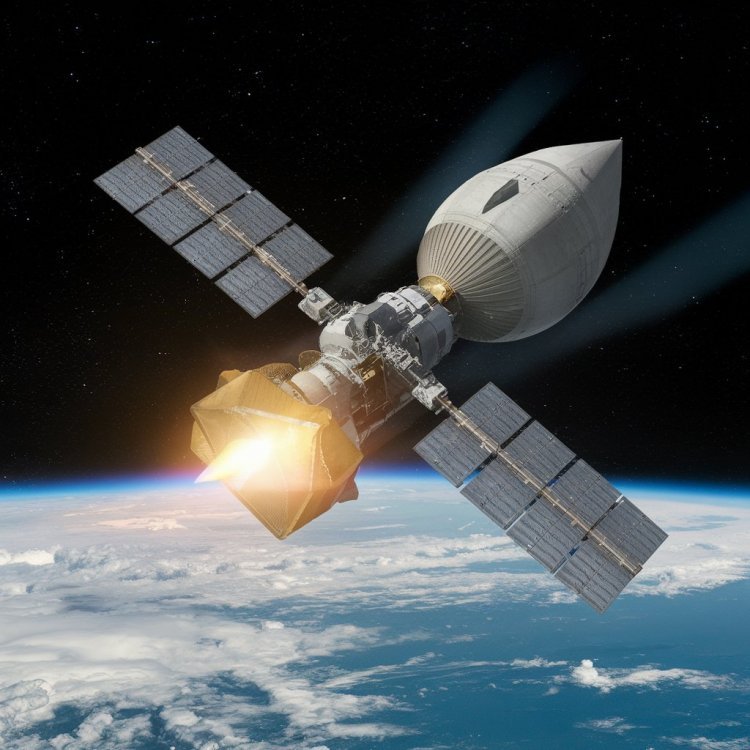Russia's Nuclear Weapons Capabilities in Space: Implications for Satellite Security and NATO Strategy
Explore the implications of Russia's nuclear weapons capabilities in space and their impact on satellite security, along with NATO's strategic responses.

Russia's Nuclear Weapons Capabilities in Space: Implications for Satellite Security and NATO Strategy
In recent years, the specter of nuclear weapons extending into space has become a pressing concern for global security. Russia's advancements in this domain have raised alarms, particularly regarding the potential threats posed to satellite infrastructure. This article explores Russia's nuclear capabilities in space, the implications for satellite security, and NATO's strategic considerations in response.
Russia's Nuclear Weapons Capabilities in Space
Russia's pursuit of nuclear-powered or nuclear propulsion Anti-Satellite Weapons (ASAT) marks a significant escalation in the militarization of space. As outlined in recent reports, the development of such technologies could pose severe threats to satellites, which are vital for communication, navigation, surveillance, and more. The ability to disable or destroy satellites from space could disrupt global communications networks, jeopardize military operations, and destabilize international security.
The concept of nuclear-powered ASATs involves using nuclear reactors or propulsion systems to enhance the range, speed, and destructive capabilities of anti-satellite weapons. This technology allows for attacks on satellites from orbit, potentially rendering them inoperable and disrupting vital services that rely on satellite infrastructure.
Threat to Satellite Security
Satellites are indispensable assets for both civilian and military operations worldwide. They facilitate everything from weather forecasting to global positioning, telecommunications, and intelligence gathering. The vulnerability of satellites to nuclear threats in space underscores the critical need for enhanced security measures and international cooperation in space governance.
The destruction or incapacitation of satellites could have far-reaching consequences. For instance, it could disrupt global financial transactions, interrupt emergency response systems, and impede military communications and intelligence sharing. Moreover, the debris generated from such actions could pose hazards to other satellites and spacecraft, exacerbating the issue of space debris and endangering future space missions.
NATO's Strategic Response
NATO, as a cornerstone of Western security architecture, faces complex challenges in responding to Russia's evolving nuclear capabilities in space. The alliance must consider how to safeguard satellite infrastructure while deterring potential threats effectively. Key strategic imperatives include:
-
Defining Acceptable Terms with Russia: NATO must engage in dialogue to understand Russia's perspective on what constitutes acceptable terms regarding space militarization. This includes addressing concerns about perceived threats to Russian national security, which could inform diplomatic efforts to mitigate tensions.
-
Enhancing Theatre Nuclear Capabilities: In response to evolving threats, NATO advocates for the deployment of forward-deployed, survivable theatre nuclear capabilities. These systems are designed to penetrate adversary air and missile defenses effectively, ensuring deterrence and defense across Europe.
-
Strengthening Conventional Capabilities: Recognizing the need for a balanced approach, NATO emphasizes the importance of bolstering conventional military capabilities among European allies. This includes optimizing efficiency and readiness to respond to various security challenges, including those posed by space-based nuclear threats.
European Allies and Conventional Capability
European Allies are crucial partners in NATO's efforts to maintain security and stability in the face of emerging threats. As NATO adapts to new security challenges, European Allies will have to enhance their conventional military capabilities more efficiently. This involves investing in modern equipment, improving interoperability between allied forces, and streamlining defense procurement processes.
The European Deterrence Initiative (EDI) underscores NATO's commitment to enhancing defense capabilities across Europe. By investing in infrastructure and capabilities that enhance deterrence and defense, NATO aims to strengthen its collective security and resilience against evolving threats, including those posed by Russia's nuclear capabilities in space.
Conclusion
The intersection of nuclear weapons capabilities and space represents a critical juncture in global security. Russia's advancements in nuclear-powered ASAT technologies highlight the urgent need for coordinated international efforts to preserve the stability and security of space. NATO's strategic responses, focusing on dialogue, deterrence, and enhanced capabilities, underscore the alliance's commitment to safeguarding satellite infrastructure and maintaining peace in an increasingly complex security environment.
As NATO and its allies navigate these challenges, collaboration, innovation, and strategic foresight will be paramount in mitigating risks and promoting responsible space governance. By addressing these issues proactively, the international community can uphold the peaceful uses of space while deterring potential threats posed by nuclear weapons capabilities in orbit.
What's Your Reaction?




















